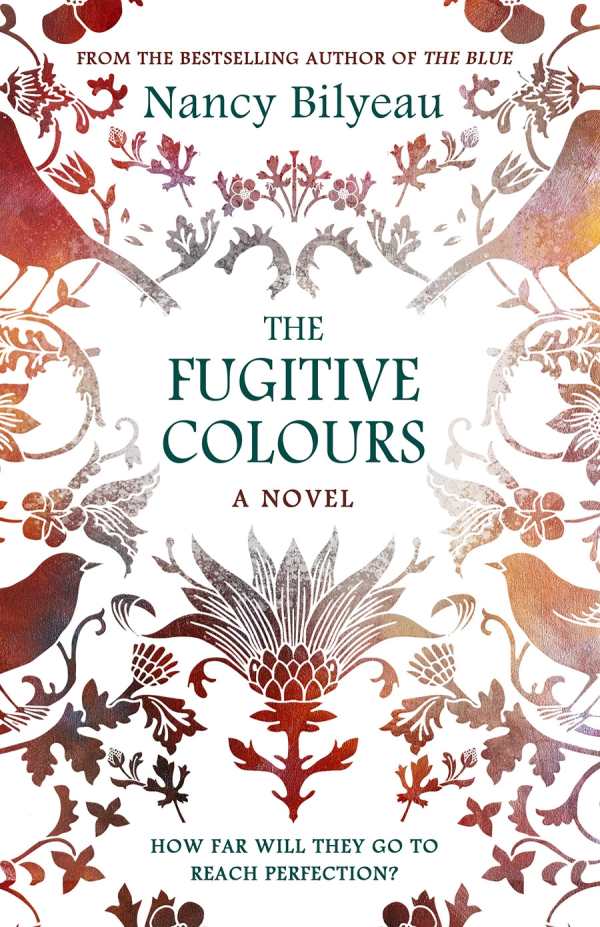
The Fugitive Colours
Nancy Bilyeau’s The Fugitive Colours is a suspenseful novel set within the London art world of the 1760s.
In Spitalfields, amid London’s Huguenot community, entrepreneur Genevieve struggles to keep her silk design business going. Because her husband, a respected scientist, is forbidden from working in his field due to a secret international incident in their past, she works to supplement their family income. While she yearns to be a fine artist, that seems impossible in Georgian England, a world dominated by men.
When a famous portrait artist invites her to a soiree, Genevieve hopes he’ll be a benefactor and help her artistic aspirations. With her husband away, she is accompanied by Caroline, a painter at her studio. But Genevieve begins to suspect that her welcome into London society may have more to do with her past industrial espionage than her artistry.
London is teeming with intense rivalries and political intrigue, as well as thieves and spies willing to betray England for money. Genevieve is unsure of whom she can trust: bribes, threats, and blackmail reveal the extent that nefarious people will go to to get what they want. When Caroline is kidnapped, Genevieve travels the gritty streets of London alone, facing hostile men to rescue her. Her arrival upon a murder turns her into a suspect.
With historical details, including around period dress, views, and language, as well as tensions from the recent war with France, the novel reveals London’s high society and its seamier side in a seamless manner. There are dips into artistic salons, the Foundling Hospital, and London’s love affair with the Italian castrato Giovanni Manzouli that result in the flavor of being in Genevieve’s world.
Set in Georgian-era London, The Fugitive Colours is an immersive historical mystery full of surprising twists.
Reviewed by
Wendy Hinman
Disclosure: This article is not an endorsement, but a review. The publisher of this book provided free copies of the book to have their book reviewed by a professional reviewer. No fee was paid by the publisher for this review. Foreword Reviews only recommends books that we love. Foreword Magazine, Inc. is disclosing this in accordance with the Federal Trade Commission’s 16 CFR, Part 255.
